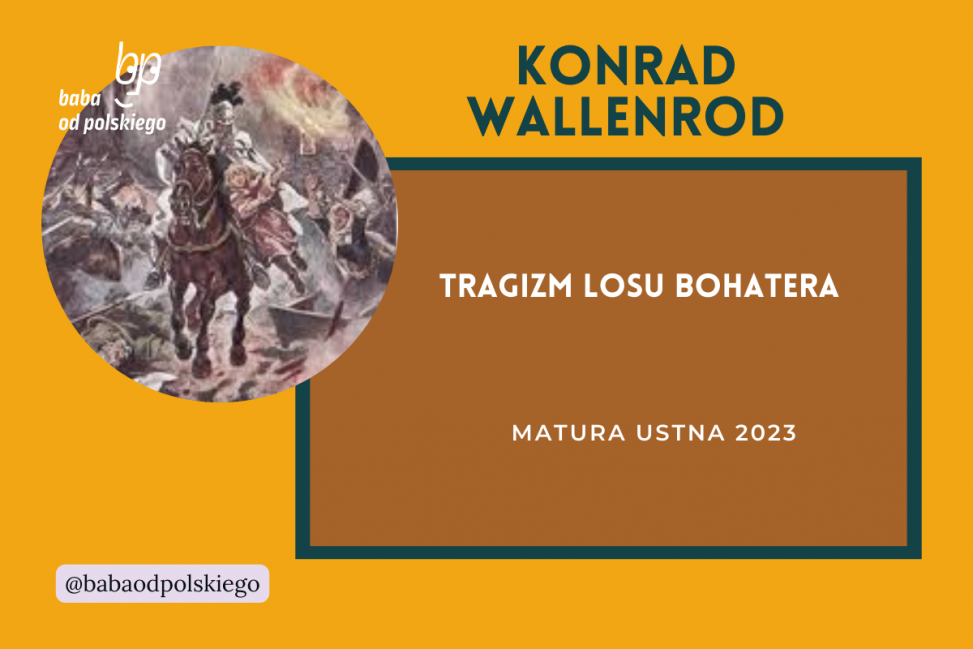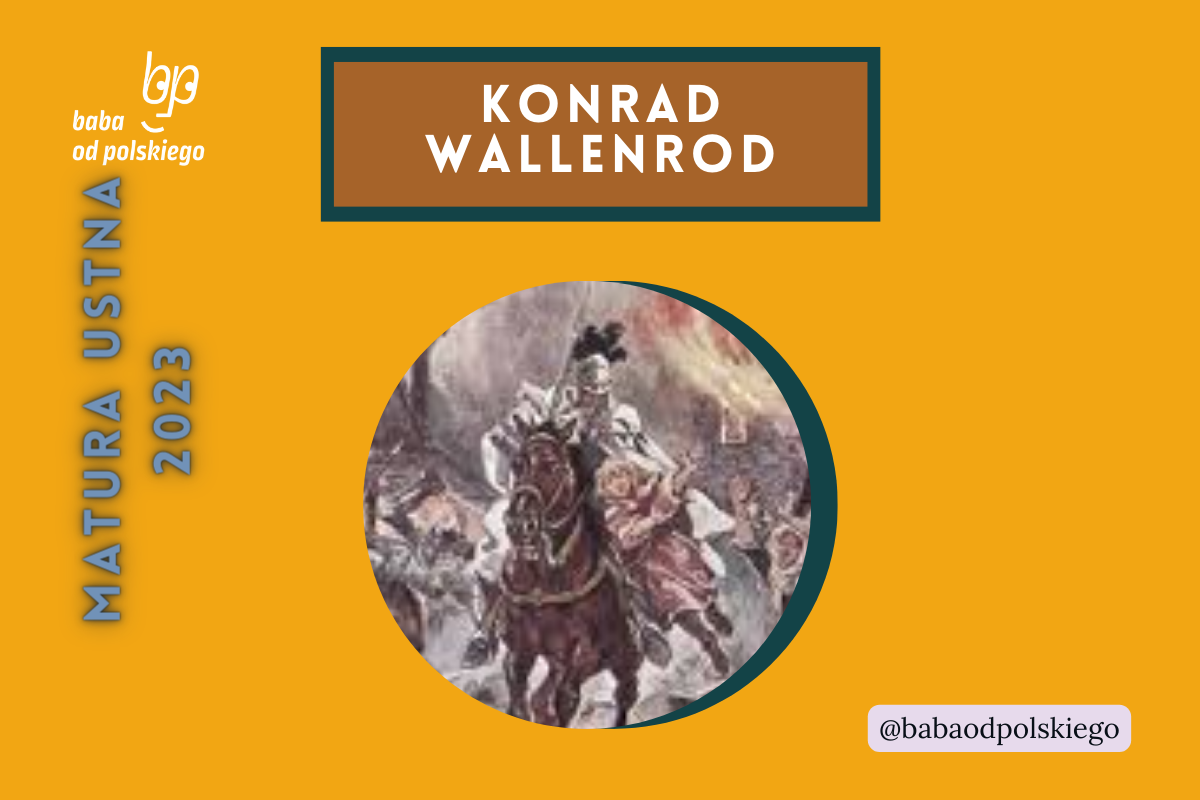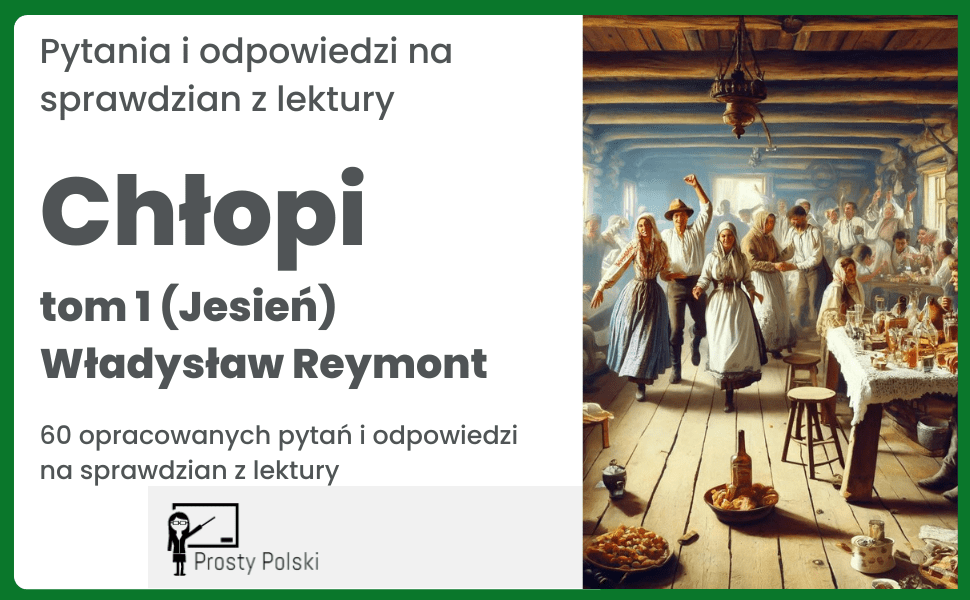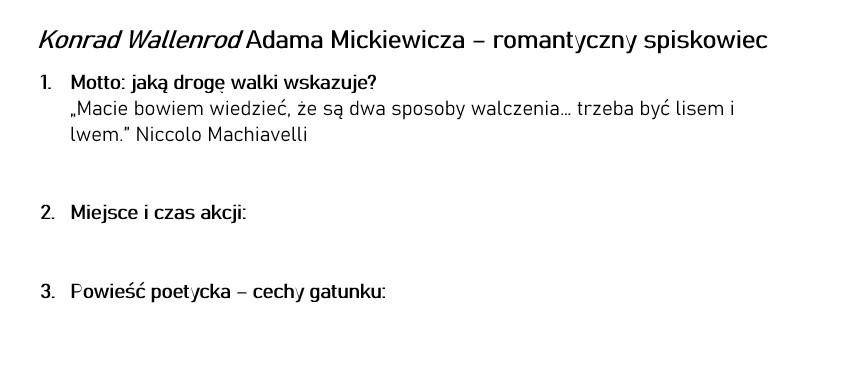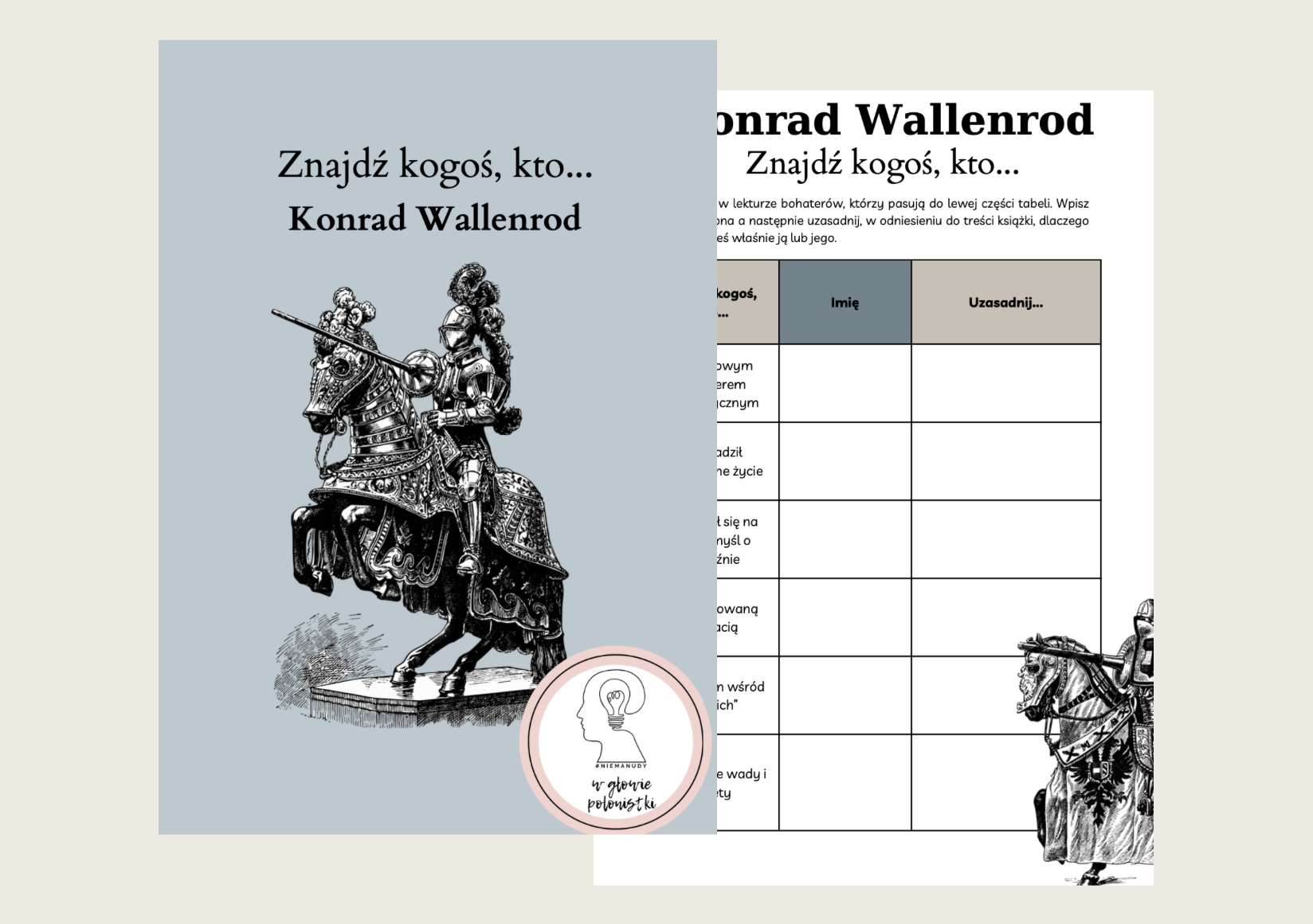Konrad Wallenrod Pytania I Odpowiedzi

Konrad Wallenrod Adama Mickiewicza to jedno z najważniejszych dzieł romantyzmu polskiego. Jego zrozumienie bywa wyzwaniem, dlatego spróbujemy odpowiedzieć na najważniejsze pytania dotyczące tego utworu w sposób przystępny i z wykorzystaniem wizualnych przykładów.
Kim był Konrad Wallenrod? Bohater zagadka.
Konrad Wallenrod to postać historyczna, ale Mickiewicz uczynił go bohaterem literackim. W powieści poetyckiej poznajemy go jako Waltera Alfa, litewskiego chłopca porwanego przez Krzyżaków. Wychowywany w ich zakonie, zyskuje zaufanie i wiedzę, by ostatecznie, pod przybranym imieniem Konrada Wallenroda, zostać wielkim mistrzem zakonu krzyżackiego. Ale to dopiero początek dramatu...
Wyobraź sobie podwójnego agenta w czasach współczesnych – kogoś, kto przenika do organizacji terrorystycznej, zdobywa ich zaufanie i od środka ją sabotuje. Konrad Wallenrod to podobna postać, tylko osadzona w realiach średniowiecza. Jego cel: zemsta na Krzyżakach za krzywdy wyrządzone Litwie.
Dlaczego Konrad Wallenrod jest bohaterem tragicznym? Ponieważ cena, jaką płaci za swoje czyny, jest ogromna. Musi porzucić tożsamość, kłamać, oszukiwać i doprowadzić do upadku zakon, który go wychował. Poświęca swoje szczęście, miłość i honor, aby osiągnąć cel. To czyni go postacią niezwykle złożoną i budzącą współczucie.
Pytanie: Dlaczego Wallenrod wybiera podstęp zamiast otwartej walki?
Wallenrod wie, że Litwa nie ma szans w otwartej walce z potężnym zakonem krzyżackim. Jego siła militarna i zasoby są nieporównywalne. Dlatego jedyną nadzieją Litwinów jest podstęp. Wallenrod, wykorzystując swoją pozycję, doprowadza do klęski Krzyżaków poprzez błędne decyzje militarne, złą strategię i osłabienie wewnętrzne zakonu.
Pomyśl o Dawidzie i Goliacie. Dawid, choć słabszy fizycznie, pokonał Goliata dzięki sprytowi i precyzji. Wallenrod to Dawid w starciu z krzyżackim Goliatem.
„Wybrałem podstęp, bo nie miałem siły.” - to słowa, które doskonale oddają motywację Konrada.
Metoda Wallenroda: Machiavellizm po polsku
Metoda Wallenroda to termin używany do określenia działań opartych na podstępie, zdradzie i manipulacji w celu osiągnięcia wyższego celu. Jest to nawiązanie do Niccolò Machiavellego, autora "Księcia", który uważał, że cel uświęca środki.
Wyobraź sobie szachownicę. Wallenrod jest mistrzem szachowym, który poświęca piony, aby zyskać przewagę i w końcu dać mata królowi przeciwnika. Jego ofiary to zarówno Krzyżacy, jak i on sam.
Czy metoda Wallenroda jest moralna? To pytanie pozostaje otwarte. Mickiewicz nie daje jednoznacznej odpowiedzi. Z jednej strony, rozumiemy desperację bohatera i jego pragnienie zemsty. Z drugiej strony, widzimy moralne konsekwencje jego czynów. Samo użycie podstępu i kłamstwa budzi wątpliwości.
Pytanie: Czy Konrad Wallenrod jest bohaterem pozytywnym czy negatywnym?
To zależy od punktu widzenia. Z perspektywy Litwy, Konrad jest bohaterem, który poświęcił wszystko dla swojego narodu. Z perspektywy Krzyżaków, jest zdrajcą i oszustem. Z perspektywy moralnej, jego postępowanie jest problematyczne, bo cel nie zawsze uświęca środki.
Pomyśl o Robin Hoodzie. Jedni widzą w nim bohatera, który okradał bogatych, aby pomóc biednym. Inni widzą w nim przestępcę, który łamał prawo. Ocena zależy od perspektywy.
Miłość i poświęcenie: Aldona i Konrad
W powieści poetyckiej ważny jest wątek miłości Konrada i Aldony. Aldona, żona Waltera Alfa (Konrada), poświęca swoje życie, aby żyć w wieży obok zamku krzyżackiego, gdzie Konrad jest wielkim mistrzem. To symboliczne odseparowanie od świata jest ceną, jaką oboje płacą za wybory Konrada.
Wyobraź sobie dwoje ludzi, których łączy silna miłość, ale dzieli przepaść spowodowana wojną i ideologią. Ich miłość jest jak kwiat, który rośnie na pustyni, symbolizując nadzieję i tęsknotę.
Pytanie: Jaką rolę odgrywa Aldona w życiu Konrada Wallenroda?
Aldona jest symbolem utraconego szczęścia i niewinności Konrada. Jej obecność przypomina mu o jego przeszłości i o tym, co poświęcił. Jej cierpienie jest dla niego dodatkowym obciążeniem i motywacją do działania.
Pomyśl o Penelopie w "Odysei" Homera. Czeka ona wiernie na powrót swojego męża, Odysa, przez wiele lat. Aldona jest podobną postacią, choć jej los jest jeszcze bardziej tragiczny.
Zakończenie: Tragiczny finał i przesłanie dzieła
Finał powieści poetyckiej jest tragiczny. Konrad Wallenrod zostaje zdemaskowany i skazany na śmierć. Popełnia samobójstwo, aby uniknąć hańby i cierpienia. Jego śmierć jest symbolem klęski i beznadziei.
Wyobraź sobie górę, na którą wspina się bohater. U szczytu czeka na niego przepaść. Jego triumf okazuje się pyrrusowym zwycięstwem.
Przesłanie Konrada Wallenroda jest złożone i wieloznaczne. Mickiewicz przestrzega przed użyciem podstępu i zdrady jako metody walki, ale jednocześnie pokazuje dramatyczne konsekwencje walki o wolność. Dzieło skłania do refleksji nad moralnością, poświęceniem i losem jednostki w obliczu historii.
Pamiętaj, Konrad Wallenrod to nie tylko historia o zdradzie i zemście. To przede wszystkim opowieść o człowieku, który poświęcił wszystko, aby walczyć o swoją ojczyznę. Jego los pozostawia nas z pytaniami, na które nie ma łatwych odpowiedzi.
